Golden Retriever
Golden Retrievers were first developed in 19th-century Scotland by crossing Yellow Retrievers with Tweed Water Spaniels, Bloodhounds, Irish Setters, and other retriever breeds. Originally bred as versatile hunting dogs, they quickly gained recognition for their intelligence, loyalty, and friendly temperament. Today, Golden Retrievers are not only beloved family pets but also serve as remarkable therapy and assistance dogs. Their gentle and empathetic nature makes them ideal companions in hospitals, schools, and nursing homes, where they bring comfort, reduce stress, and promote emotional well-being.

Male
Ideal height: 58 - 61cm Ideal weight: 30 - 34kg

Female
Ideal height: 55 - 57cm Ideal weight: 25 - 32kg
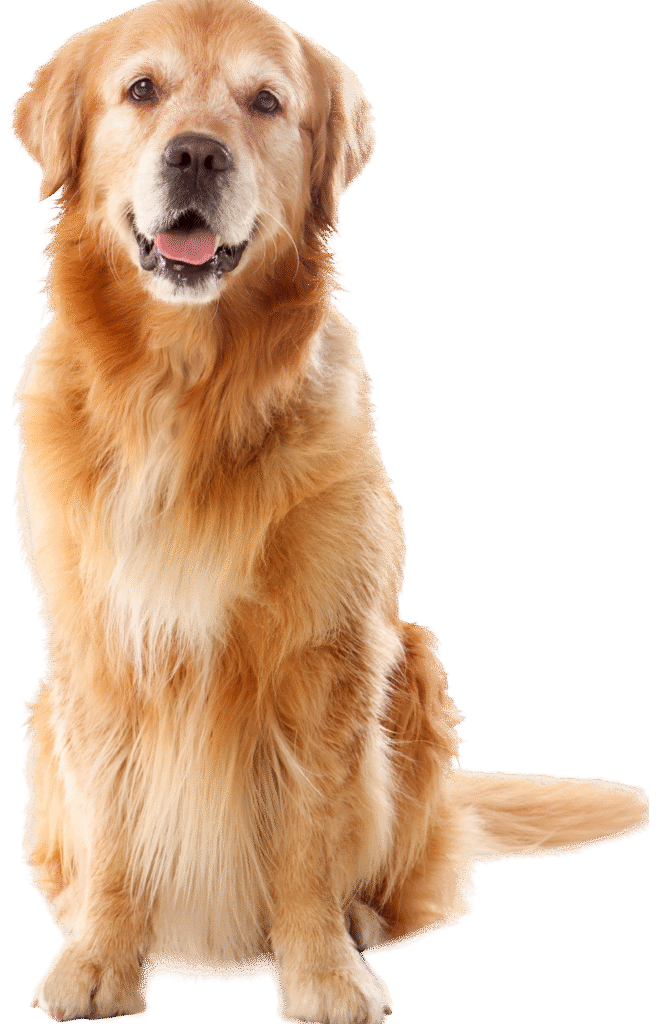
Size
Medium
Life Span
10 – 12 Years
Coat
Color
Medium
Traits & Characteristics
80%
100%
20%
60%
100%

Heat Tolerance
upto 27° C

Cold Tolerance
Upto -6° C

Best Diet for Golden Retriever


Carbohydrates
30 – 50%
Protein
20 – 30%
Fats
8 – 16%
Essentials, Vitamins & Minerals
6 – 8%
Fiber
2 – 4%
Total Kcal
2,100 – 2,800
Must have meal for a Golden Retriever
Golden Retrievers require a balanced diet to support their overall health and energy levels. They should be fed two meals a day, focusing on high-quality, easily digestible food. Golden Retrievers are prone to digestive issues and have a genetically sensitive stomach, which can lead to problems like upset stomachs or food intolerances. To manage these issues, use a consistent diet, avoid abrupt food changes, and choose food designed for sensitive stomachs if needed. Regular feeding schedules and appropriate portion control help maintain their digestive health.
🐾 Try Our Golden Retriever Fresh Food!
Wholesome, freshly cooked meals crafted for your Golden Retriever health and happiness.
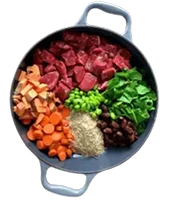
Book a Dog Diet Consultation
Get personalized diet advice for your Golden Retriever for Absolutely FREE

Golden Retriever Diet
Opting for fresh meals ensures your Golden Retriever gets natural, nutrient-rich food that supports healthy growth, strong bones, immunity, and a shiny coat. Golden Retrievers are prone to weight gain, so portion-controlled balanced meals are important to keep them fit, active, and happy. Fresh meals are also easier to digest than kibble, helping your Golden stay energetic and full of life every day.

Protein Based Diet
Golden Retrievers thrive on a protein-rich, fresh diet that keeps their muscles strong, coat glossy, and digestion smooth. Vegetables like sweet potato, pumpkin, carrots, and spinach provide fiber and essential vitamins, while chicken, eggs, paneer, and fish supply high-quality protein and omega-3s for joint and heart health.
Simple meals like chicken with rice and veggies or paneer with quinoa and spinach match Golden Retrievers’ high energy needs. Adding a touch of olive oil or fish oil helps improve joint flexibility and coat shine.
❌ Avoid harmful foods: onion, garlic, grapes, raisins, avocado, chocolate, excess salt, and oily/fried foods.
WEIGHT, STRENGTH AND GUT CONSIDERATE DIET
Golden Retrievers are prone to weight gain because of their hearty appetite, so a balanced, portion-controlled diet is essential. Fiber-rich foods like pumpkin, carrots, beans, and spinach support healthy digestion, while lean proteins such as chicken, turkey, and fish keep muscles strong without adding unnecessary calories.
Adding probiotics from curd or yogurt helps maintain gut balance, while omega-3 fatty acids from fish oil support joint flexibility, reduce inflammation, and keep their coat shiny — especially important for active Golden Retrievers
Consider Their Age
Just like humans, a Golden Retriever’s diet changes with age:
🐾 Puppies (6–12 months): Need protein-rich, calorie-dense meals to support rapid growth, strong bones, and developing immunity.
🐾 Adults (1–7 years): Require balanced diets with lean protein, healthy fats, and controlled calories to fuel energy, maintain muscle, and prevent obesity.
🐾 Seniors (7+ years): Benefit from lighter, easily digestible meals with added fiber, joint-support nutrients like glucosamine, and antioxidants to slow aging and boost overall health.

Apple
Provide fiber and vitamins; ensure seeds and core are removed.

Carrot
Crunchy and rich in vitamins; supports dental health and is low in calories.
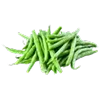
Green Beans
Low in calories and high in fiber, aiding digestion and keeping them full.

Sweet Potato
Nutrient-dense with fiber, helping digestion and providing essential vitamins.
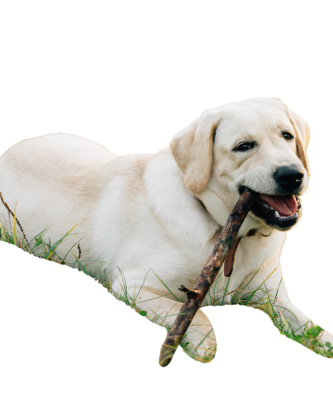
Training Needs for Golden Retrievers
Golden Retrievers are intelligent, friendly, and eager to please, making them one of the most trainable dog breeds. Their gentle temperament, combined with high energy, means they respond well to positive reinforcement and early socialization.
Because Goldens are naturally playful, they may develop habits like jumping, chewing, or pulling on the leash if not guided properly. Consistent training helps channel their enthusiasm into good behavior.
These dogs thrive on daily physical activity such as walking, running, swimming, or agility games. At the same time, they need mental stimulation like puzzle toys or obedience exercises to stay sharp and prevent boredom-related mischief.
With the right balance of exercise, training, and affection, Golden Retrievers grow into happy, obedient, and well-mannered companions.

Puppy Stage (2–6 months)
Golden Retriever puppies are playful, curious, and quick learners. Early training should focus on potty habits, crate training, and introducing basic commands like sit, stay, and come. Gentle socialization with different people, pets, and environments is essential to prevent shyness or fearfulness. Positive reinforcement with treats, praise, or toys works exceptionally well. Early sessions should also address chewing and teething behaviors to set good habits from the start.
Suggested Package: 8 Sessions

Adolescent Stage (6–18 months)
Adolescent Goldens are energetic and may test boundaries. Training should reinforce obedience commands, impulse control, and leash manners. Mental stimulation is important—use interactive games, structured play, and obedience challenges to channel energy positively. Encourage calm behavior in new situations and around guests. Intermediate training programs at this stage focus on reliable recall, controlled play, and more complex commands to build a well-rounded adult dog.
Suggested Package: 12 Sessions

Adult Stage (1.5 years +)
Adult Golden Retrievers benefit from ongoing training and enrichment. Focus on advanced obedience, long-distance recall, and calm behavior in busy or distracting environments. Incorporate mental challenges like puzzle games, scent work, or trick training to keep them engaged. Reinforcing social manners, patience, and self-control ensures your Golden Retriever remains a loyal, confident, and well-behaved companion for life
Suggested Package: 16 Sessions
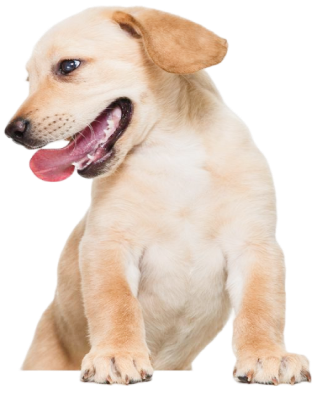
Dog Training: Expert Guidance at Home
Turn your pup into a well-mannered pro—where training meets success

Vet Visits

Puppyhood (0-1 Year):

Every 3-4 weeks until 16 weeks, then every 6-12 months.

Vaccinations, parasite control, neutering, and behavior guidance.
Adulthood (1-6 Years):

Annual check-ups.

Vaccine boosters, dental care, diet, exercising, weight management.
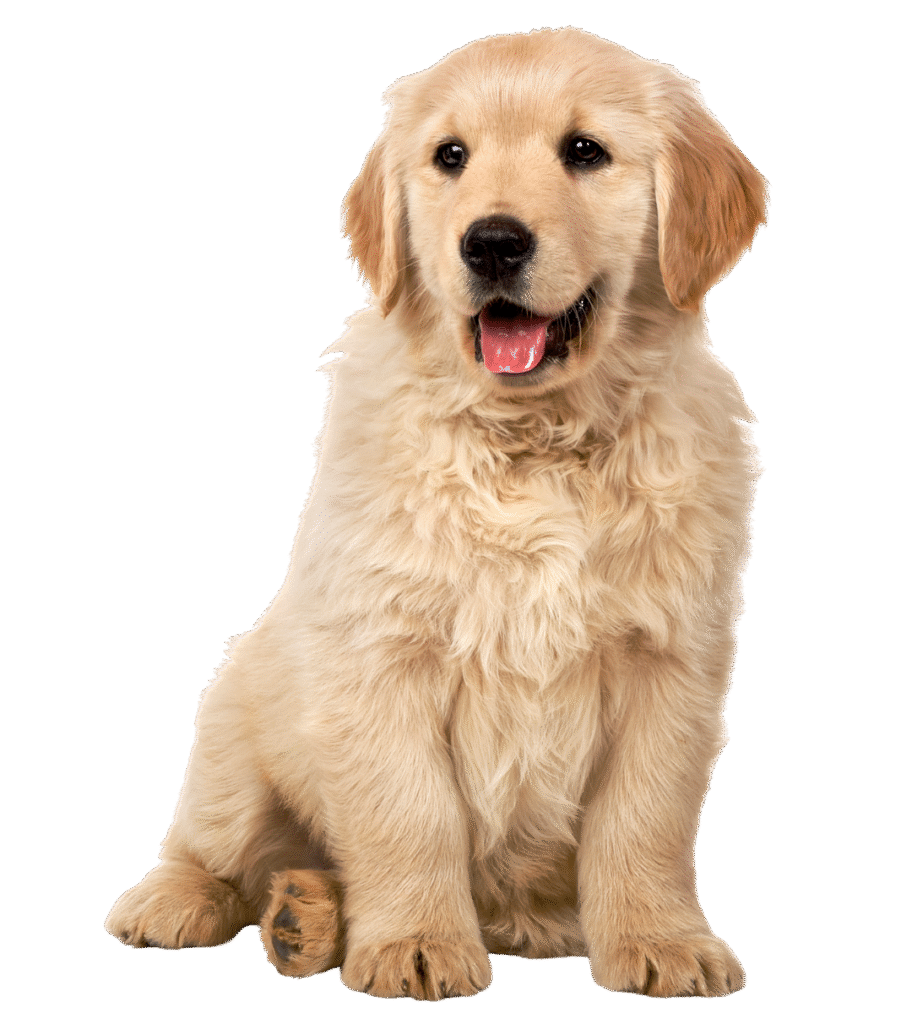
Mature adulthood (7-9 Years):

Annual or bi-annual visits.

Senior screenings, joint health, vision and hearing checks, and diet adjustments.
Senior years (10+ Years):

Bi-annual visits or more.

Comprehensive exams, pain management, cancer screening, quality of life, and senior nutrition.
Vaccination Schedule

First
6-8 week
Second
10-12 week
Third
14-16 week
Regular
Yearly once
Grooming
Golden Retrievers have beautiful double coats that need regular grooming to stay shiny, healthy, and tangle-free. Weekly brushing helps manage shedding, reduces mats, and keeps their fur soft. A bath every 6–8 weeks, or as needed, maintains coat cleanliness and freshness. Regular grooming not only improves their appearance but also supports their overall hygiene.
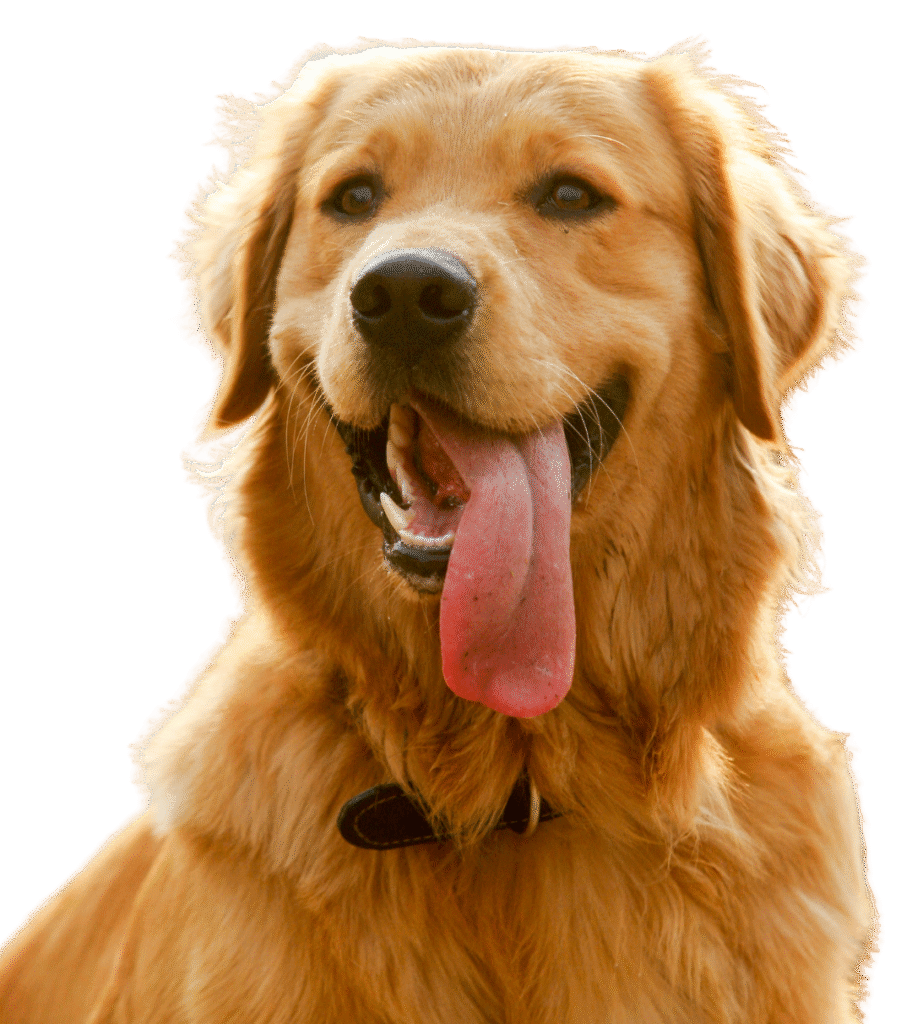
Brush & Bath guide
Trim your Golden Retriever’s nails every 3–4 weeks to prevent discomfort or overgrowth that can affect walking. Check their paws regularly for cuts, debris, or cracks, and moisturize with a vet-approved paw balm if needed. Proper paw and nail care keeps them comfortable and active.

Ear Cleaning
Golden Retrievers are prone to ear infections due to their floppy ears. Clean their ears gently once a week using a vet-recommended ear cleaner and cotton pads. Regular checks prevent wax buildup, odor, and infections, keeping their ears healthy and pain-free.
Nail clipping & Paw care
Trim your Golden Retriever’s nails every 3–4 weeks to prevent discomfort or overgrowth that can affect walking. Check their paws regularly for cuts, debris, or cracks, and moisturize with a vet-approved paw balm if needed. Proper paw and nail care keeps them comfortable and active.
Period Care
During her heat cycle, keep your Golden Retriever comfortable with doggy diapers and extra attention. Provide gentle care, monitor her health closely, and create a calm environment so she feels safe and secure.
Dental Care
Golden Retrievers need regular dental care to prevent plaque buildup and gum disease. Brush their teeth 2–3 times a week, offer dental chews, and schedule annual vet check-ups to maintain strong teeth and fresh breath.

Give Your Golden Retriever a Spa Day at Home!
👉 Regular grooming keeps your Golden Retriever’s coat shiny, reduces shedding, and prevents skin infections. A little extra care makes them healthier, happier, and more comfortable year-round.


Health Conditions for Golden Retriever

Cancer
A cancer that affects blood vessels, commonly found in the spleen, heart, or liver.
Symptoms:
Sudden lethargy, weakness, pale gums, abdominal swelling, or collapse.
How to avoid:
There is no specific prevention, but regular vet visits and monitoring for unusual symptoms can lead to early detection, which improves treatment outcomes.
Hip Dysplasia
Hip dysplasia in dogs is a genetic condition where the hip joint doesn’t fit properly, causing pain and mobility issue.
Symptoms:
Lameness and Difficulty moving
How to avoid:
Managing weight, providing joint supplements.
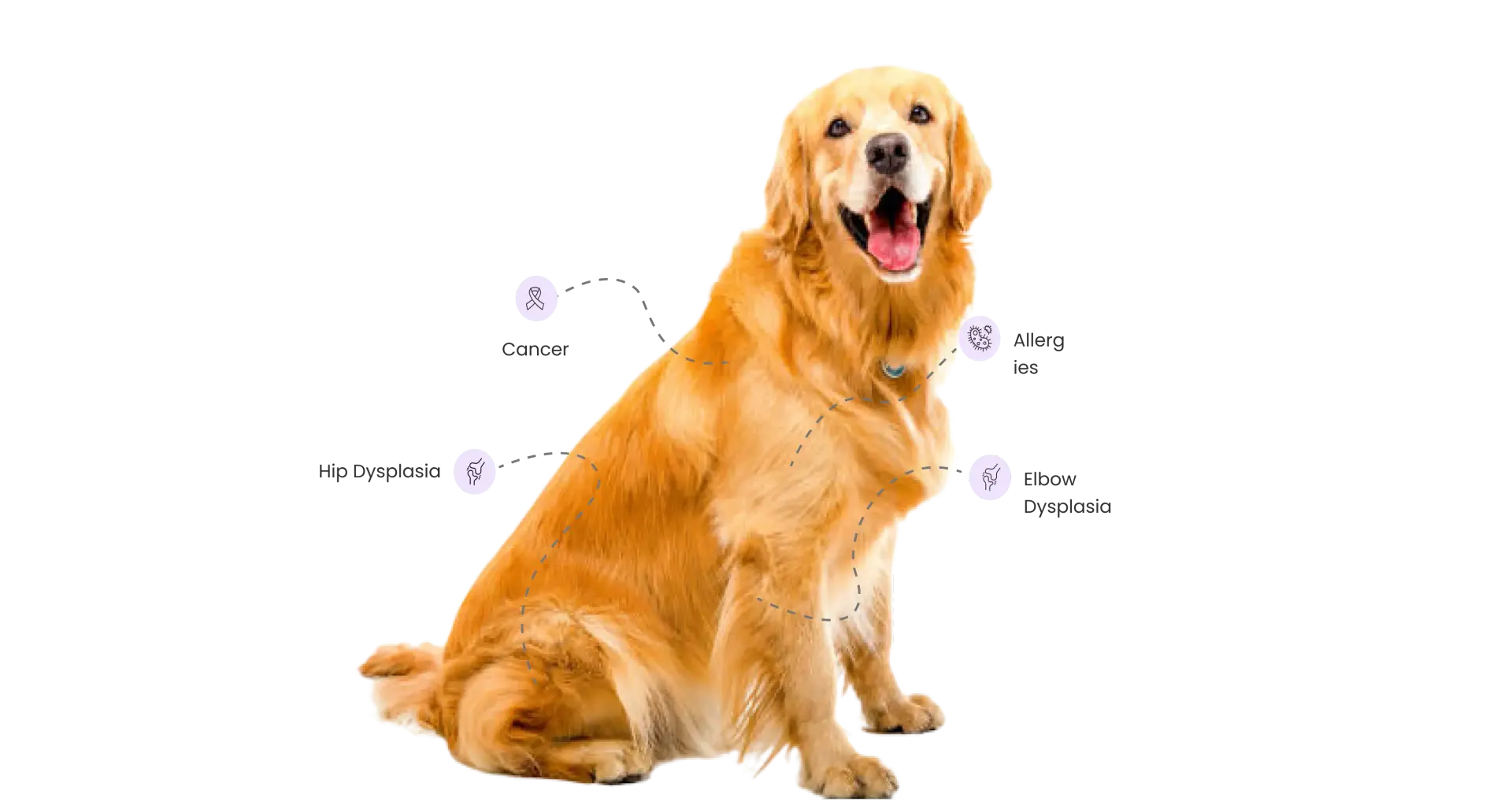
Allergies
Allergies in Golden Retrievers often cause symptoms like itching, red skin, and digestive issues.
Symptoms:
Triggered by food, environmental factors, or fleas
How to avoid:
Avoid allergens, maintain a clean environment, and use hypoallergenic products. Regular vet visits can help diagnose and treat allergy-related issues effectively.
Elbow Dysplasia
A developmental condition affecting the elbow joint, causing pain and arthritis.
Symptoms:
Limping, difficulty in rising, swelling in the joint.
How to avoid:
Ensure proper nutrition, moderate exercise, and avoid high-impact activities in puppies.
Frequently Asked Questions

Golden Retrievers are ideal if you want a friendly, intelligent, and affectionate companion. They excel as family pets, therapy dogs, and working dogs. This breed thrives with daily exercise, mental stimulation, and socialization. Golden Retrievers are best suited for owners who can commit to training, grooming, and regular playtime. With proper care, Golden Retrievers are loyal, loving, and highly rewarding pets.
Golden Retriever puppies are playful, social, and intelligent. Early socialization, structured routines, and toilet training are essential to raise a confident, well-behaved adult dog. Introduce them to new people, pets, and environments to prevent behavioral issues such as fearfulness or excessive chewing.
Take your puppy outside after meals, naps, and playtime. Reward immediately when they eliminate in the correct spot. Follow this 90-day toilet training schedule:
Week 1–2: Take outside every 2 hours and after meals. Praise and reward.
Week 3–6: Extend intervals to 3–4 hours while maintaining consistency.
Week 7–12: Encourage longer outdoor intervals, introduce commands like “Go potty,” and supervise indoors to prevent accidents.
Golden Retrievers are energetic dogs. Adults need 60–90 minutes of daily exercise, ideally split into 2 walks per day, combined with play, swimming, and mental stimulation. Puppies need shorter, frequent walks to protect developing joints.
Feed a high-quality large-breed puppy diet with high protein and moderate carbs to support growth, strong bones, and muscle development. Include supplements like calcium, glucosamine, and omega-3 fatty acids for joint health. Adult Golden Retrievers benefit from balanced meals with controlled portions to maintain weight and overall health.
Brushing: 3–4 times a week; daily during heavy shedding seasons.
Bathing: Every 4–6 weeks using mild shampoo.
Trimming: Mainly around paws, sanitary areas, and feathering as needed.
Nail care: Trim every 3–4 weeks.
This routine keeps their long, dense coat healthy, shiny, and clean while reducing mats and shedding.
Start training from 8–9 weeks using positive reinforcement. Teach commands like sit, stay, come, and leash walking. Early training prevents behavioral issues and helps manage their high energy and intelligence.
Schedule regular vet visits, vaccinations, and deworming. Feed a balanced diet, provide consistent exercise, and monitor for breed-specific issues like hip and elbow dysplasia, heart problems, and obesity. Preventive care ensures a long and healthy life.
Golden Retrievers thrive on mentally and physically engaging activities: fetch, swimming, agility, obedience training, and scent games. These activities keep them active, happy, and prevent destructive behaviors.
Brush 3–4 times a week, more during heavy shedding. A balanced diet with omega-3 fatty acids supports healthy skin and coat. Golden Retrievers have a dense double coat, so shaving is unnecessary. Regular grooming keeps them clean, healthy, and comfortable.


















